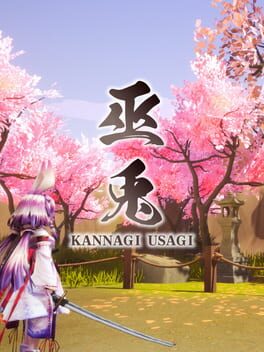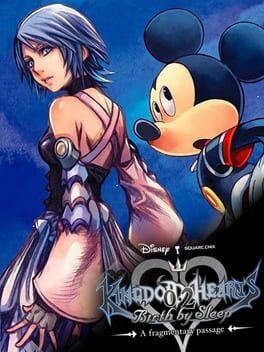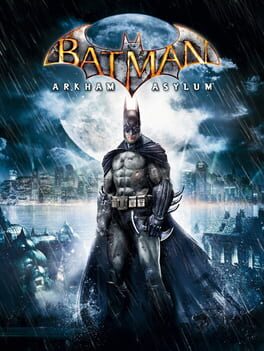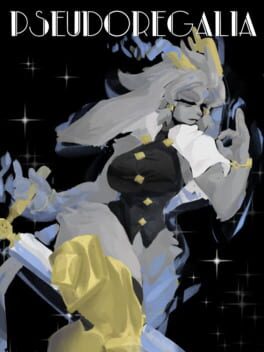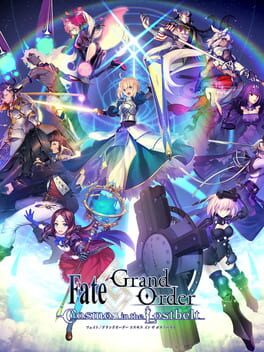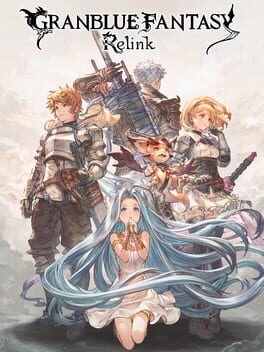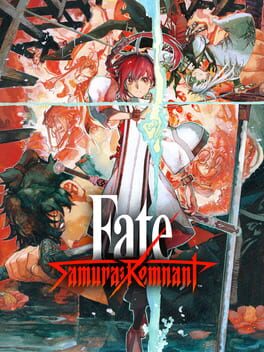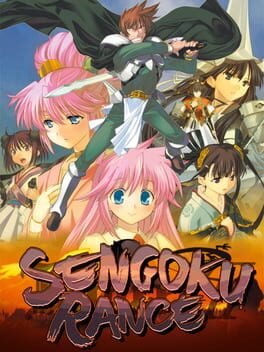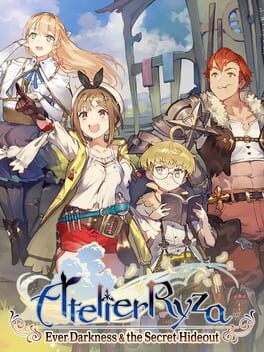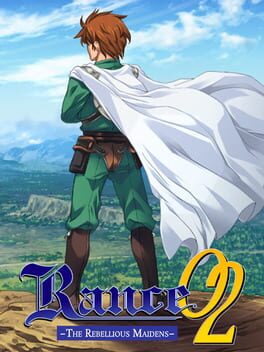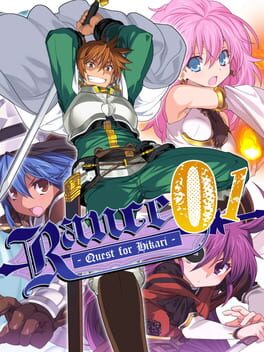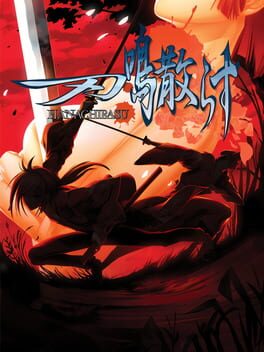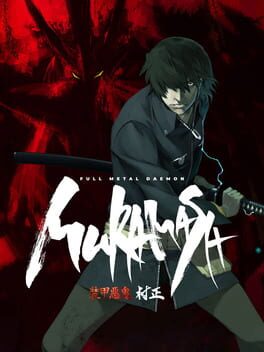Eithi
2023
Kingdom hearts is a series known for two things: Mickey Mouse doing anime shit and its brutal boss fights in its hardest difficulties. KH2's longstanding reputation comes primarily through how its 14 secret bosses challenge the player in different ways, playing around with various systems that colease into a game that demands high execution from its players. It's never impossible, but learning how to work through their mechanics and besting them by appreciating and understanding the combat engine is one of the most satisfying things in any game and makes it stand on top as an incredible action game.
I have also never beaten one of them.
So playing through KH 0.2 as a warm up to my KH3 playthrough was very interesting because this is the most Kingdom Hearts has ever approached being an action game. There's no customization, no decisions, no gained abilities outside the first area. It's just you, the enemies, and the designer trying to see how it all ticks together. While most of the game is a generally easy slide that prepares you for KH3 by showing you what the team can do now that they're on a playstation 4, its secret boss gauntlet was genuienely one of the hardest things ive ever played in an action game, and it all comes down to its final boss.
Zodiac Phantom Aqua is, from my understanding, kinda meligned by the general KH community. Her attacks are very reactive and you can't get away by spamming magic or grand magic or whatever it is you want to beat her. You need to learn the timings, the animations, the general flow of the battle and experiment to find those windows for yourself. Some of them are dumb, like the slow walk, others are pretty ingenious, like learning you can jump out of a block to do two full combos. Learning these patterns throughout my 4 hours grinding her was really, really fun and it made me understand what truly makes a Kingdom Hearts boss special. That ebb and flow of the systems mixing together and learning to fight a boss on its own terms, besting it in what it itself is good at, is a feeling like no other. I can't wait to get my ass handed to me by the data fights in 3.
I have also never beaten one of them.
So playing through KH 0.2 as a warm up to my KH3 playthrough was very interesting because this is the most Kingdom Hearts has ever approached being an action game. There's no customization, no decisions, no gained abilities outside the first area. It's just you, the enemies, and the designer trying to see how it all ticks together. While most of the game is a generally easy slide that prepares you for KH3 by showing you what the team can do now that they're on a playstation 4, its secret boss gauntlet was genuienely one of the hardest things ive ever played in an action game, and it all comes down to its final boss.
Zodiac Phantom Aqua is, from my understanding, kinda meligned by the general KH community. Her attacks are very reactive and you can't get away by spamming magic or grand magic or whatever it is you want to beat her. You need to learn the timings, the animations, the general flow of the battle and experiment to find those windows for yourself. Some of them are dumb, like the slow walk, others are pretty ingenious, like learning you can jump out of a block to do two full combos. Learning these patterns throughout my 4 hours grinding her was really, really fun and it made me understand what truly makes a Kingdom Hearts boss special. That ebb and flow of the systems mixing together and learning to fight a boss on its own terms, besting it in what it itself is good at, is a feeling like no other. I can't wait to get my ass handed to me by the data fights in 3.
might be the tightest videogame ever created. not a single minute wasted and it ends as soon as the game needs to. seeing the pre-city versions of every single gadget and tool was fascinating too. However it still kind of feels like an incomplete idea of a full game so it’s not super satisfying mechanically for me. Honestly if anything this makes me like city more in hindsight because of how much that improved this game’s mechanics
2023
This review contains spoilers
Forgive me if this sounds incoherent but i need an outlet to vent about my feelings regarding this game and how i feel it's betrayed any and all sense of trust ive ever put into it
to get the basics out of the way, im a big fate fan. ive been playing the NA version of this since NA launched and made playing JP one of my main goals when i started studying japanese. Being able to read lostbelt 7 when it dropped was a magical experience i wouldn't trade away for the world. FGO has been a part of my life for the better part of 6 and a half years by now and despite everything i still regard it as a favorite of mine in the sense that it's been with me throughs some of my highs and lows
which is why it pains me to say that i've given up on FGO.
the current release cycle of the jp version has been in an incredibly abhorrent state for the last year and a half now. Piece-meal would be praise given how barren it's been for months now. not only did they decide to enter a fucking anime-ass filler arc in the MIDDLE of the the "lets go to the final part of the story!" section of the game, but they have the gall to set it up in such a way that its fillerness exists in this awful liminal state between being important and not mattering at all. As of this writing only the first of the (alleged) three ordeal call main story chapters have released, with OC1 being some of the most boring, pathetic, fan-pandering-with-no-purpose things ive ever had the displeasure to read, especially after an incredible story chapter that, while not as good as lostbelt 6, managed to make me think and cry with it through it all.
the second story chapter is supposed to drop in late spring, a full year after the last story chapter's release. frankly speaking, this is game-ruining for me. the pacing of the supposed "final chapter" of the second part of the story is gonna be this dragged out mess of a plot just so the game can trudge through the 10th anniversary and end part 2 then and there. it's pathetic.
this, in turn, has killed my entire motivation to play the game. for a while i was only in general log-in mode since that required less than 0 brain power to do, given there's barely any dailies in the game to do. nowadays i can't even bare to look at the app icon on my phone without feeling an immense despair at how this game has ruined 10 years of type moon works for the sake of NOTHING but dogshit managerial work that will be a stain on the game's reputation forevermore. when the samurai remnant event was running i tried playing it given i really enjoyed samurai remnant but i couldnt go more than 3 arrow nodes before quitting because i couldn't see the point anymore.
i dont know what im gonna do with this game anymore. maybe ill still log in for the main story stuff, maybe ill just have my friends tell me what happens before the ending; but as of right now i can't think of anything other than how much this game has wasted itself in the past year trying to hold on to pathetic branches while falling from the trees above.
to get the basics out of the way, im a big fate fan. ive been playing the NA version of this since NA launched and made playing JP one of my main goals when i started studying japanese. Being able to read lostbelt 7 when it dropped was a magical experience i wouldn't trade away for the world. FGO has been a part of my life for the better part of 6 and a half years by now and despite everything i still regard it as a favorite of mine in the sense that it's been with me throughs some of my highs and lows
which is why it pains me to say that i've given up on FGO.
the current release cycle of the jp version has been in an incredibly abhorrent state for the last year and a half now. Piece-meal would be praise given how barren it's been for months now. not only did they decide to enter a fucking anime-ass filler arc in the MIDDLE of the the "lets go to the final part of the story!" section of the game, but they have the gall to set it up in such a way that its fillerness exists in this awful liminal state between being important and not mattering at all. As of this writing only the first of the (alleged) three ordeal call main story chapters have released, with OC1 being some of the most boring, pathetic, fan-pandering-with-no-purpose things ive ever had the displeasure to read, especially after an incredible story chapter that, while not as good as lostbelt 6, managed to make me think and cry with it through it all.
the second story chapter is supposed to drop in late spring, a full year after the last story chapter's release. frankly speaking, this is game-ruining for me. the pacing of the supposed "final chapter" of the second part of the story is gonna be this dragged out mess of a plot just so the game can trudge through the 10th anniversary and end part 2 then and there. it's pathetic.
this, in turn, has killed my entire motivation to play the game. for a while i was only in general log-in mode since that required less than 0 brain power to do, given there's barely any dailies in the game to do. nowadays i can't even bare to look at the app icon on my phone without feeling an immense despair at how this game has ruined 10 years of type moon works for the sake of NOTHING but dogshit managerial work that will be a stain on the game's reputation forevermore. when the samurai remnant event was running i tried playing it given i really enjoyed samurai remnant but i couldnt go more than 3 arrow nodes before quitting because i couldn't see the point anymore.
i dont know what im gonna do with this game anymore. maybe ill still log in for the main story stuff, maybe ill just have my friends tell me what happens before the ending; but as of right now i can't think of anything other than how much this game has wasted itself in the past year trying to hold on to pathetic branches while falling from the trees above.
2023
This review contains spoilers
Fate/Samurai Remnant is a game that I didn’t really have any expectations for, or any hopes of being good, but ended up blowing me away with its immense attention to detail on history, themes and what makes Type-Moon stories work.
It’s a game that tries to blend a lot of things: Musou combat, themes about violence and selfishness, interesting reflections on history, a virtual tour of XVIIth century Edo, and make a cohesive experience out of it all. Some of it works, some of it doesn’t really work, but it ends up feeling like a full package with something to actually say with its own words, even if what it’s saying isn’t inventive or new, it feels more resonant because it expresses it through itself.
But first, some context:
Fate/Samurai Remnant is an Action RPG made by Omega Force and published by Koei Tecmo. It’s based on the longrunning Fate franchise, made by writer Kinoko Nasu and it’s set in XVIIth century Edo during the early-ish days of the Tokugawa shogunate. While the game is set in the Fate universe, it’s not connected to anything other than the main elements of the setting.
When it was announced during the Fate/Grand Order new years livestream during December 2022 I was very…skeptical. I’ve long been tired of Type-Moon’s endless wheel-spinning with FGO in particular, and the state of the company thanks to it and Fate’s broadening and expanding popularity made me think that this game was just going to be another generic Fate™ branded game with nothing new to add either thematically or in concept. It didn’t help that it took around 5 months for us to see the first trailer with gameplay, which made me a bit concerned that, since the game was being developed by Omega Force, was going to be a normal musou in the vein of the studio’s other spin-off games, and while I enjoy my fair share of musou games, there wasn’t really anything for me to be excited about aside from seeing a “new” Fate game.
That was until I played the game at Anime Expo, and suddenly it started clicking for me. Bit by bit the gameplay seemed way more interesting than what I was expecting, since it didn’t end up playing like a musou game. As more and more information started to come out, I got increasingly more interested in what the game had to offer. All the interviews made it seem like the staff was extremely passionate of what they were making, and all the staff comments and live shows had this vibe of sheer hype from everyone, which kinda ended up making me excited about it.
Buuuut what about the game itself? Well like I said before I think the game is very good, but it does falter in some aspects. A lot of it really works, and two weeks after beating it I feel like I can say for sure that it’s one of my favorite works within the Fate canon for a lot of aspects, mainly the story and themes. So as my first review on this blog, and my first longform piece of writing I’ve done in a while, I want to try to examine what makes the game tick for me, both in gameplay and story, and how it all coalesces into a game that really gets what makes Type-Moon stories work.
Needless to say, there’s gonna be full spoilers in this after the read more part, so if you wanna see what the game does by yourself I recommend you play it for yourself; maybe after a sale or something.
Samurai Remnant’s combat has some interesting mechanics and plays with some ludonarrative aspects well, but does feel janky in ways that are inherent to the systems it’s inheriting from other Omega Force games. Some bosses shine, especially the servant fights that don’t involve Archers, but for most of the game you’re stuck spamming the same special skills and healing your way through fights while poorly telegraphed attacks and unclear riposte timings murk you immediately. The stance system is very fun and I think that Iori’s playstyle as someone who plays more like an ARPG character compared to the Musou-playing servants is really cool, but there’s bits of brilliance in the system that I don’t think were particularly suited for the system the game is using.
For starters, the game is really bad at being a pure action game. While it feels great on a holistic front, take one of the mechanics away and it suddenly gets a lot more boring very quickly. Whenever you have to fight a boss as a guest servant or without Saber or a Rogue Servant party member, the game devolves into tedious button mashing and waiting for windows of vulnerability, making you rely on the unclear riposte system to deal good damage against the enemy’s shield gauge so you can start dealing real damage to their health bar. I think there’s an interesting system in place here, but the issues make it very hard to determine what makes it fun and what doesn’t really work.
This doesn’t entirely mean that the game is tedious button mashing. Like I said, taking the combat holistically, it feels really nice to engage with the RPG elements. Buffing yourself, using healing items, using magic, choosing your extra party member, it all feels great to engage with even on the highest difficulty.
There’s pockets in the game where taking away mechanics does shine though. The fights with Saber, the duel with Musashi in chapter 5, the Rogue Berserker fights, the couple fights against Rogue Saber; these were all very fun fights because, to me, they feel designed around being fought first and being playable second. One of the main issues the musou framework has over the combat design is that every Servant boss (with a couple exceptions) has to use the same moveset and animations of their playable counterpart. This creates a problem with certain fights where attacks go by super fast and are impossible to react to, which leads to you getting hit hard and needing to spam healing items. Coupled with the unclear and unreliable riposte system, this makes for generally frustrating fights that felt like a slog to go through.
What makes this more frustrating is that, like I said before, sometimes the system works incredibly well. The Musashi duel I mentioned earlier is my favorite boss in the game because all her attacks are clearly readable (they literally shine with different colors) and you’re always able to play strategically against her windows where she’s vulnerable.
I think Samurai Remnant’s combat shows the cracks within Omega Force’s style of gameplay when used in a non musou context. In those games you have to plan around the macro of the level; the difficulty stems from having to do objectives and traveling the level rather than the micro of dodging attacks and doing combos. Since this game doesn’t do that, you get combat that feels “fun” to engage with but leaves a lot to be desired when engaging with the vast majority of enemies. There’s some mechanics here that try to adapt the formula into this smaller scale, like the earth parry and riposte, but because attacks in the musou framework have to large and full of VFX the screen gets hard to read very quickly, and it doesn’t help that the riposte requires some strict timing that’s not made clear with the fights involving monsters and human enemies when not controlling Saber or whatever servant you have to control in the moment.
It does work with some bosses though, like the Musashi duel and the Saber boss in chapter 3, but these fights are few and far between, which makes it extra frustrating because you can see a version of the game where learning all those timings would be really rewarding and fun but most fights feel unreadable and unreactable, and I ended up spamming affinity skills and healing items to get through them.
But honestly? the gameplay is really nothing to waste my breath over (even though I did write like 750 words on it lol). The main meat of the game is the story, the characters, the themes and what the game itself represents in the broader context of Fate and Fate’s relationship to history as historical fiction.
At its core, Samurai Remnant is a story that’s interested in the contrast of violence between post-Sengoku Japan and the “peaceful” Tokugawa shogunate. The game makes clear time and time again that Edo, compared to the Sengoku era, is a better place to live since war isn’t as prevalent or common, it’s a new era for everyone since they can live peacefully and without worries; “There’s no need to pick up the sword anymore” says Miyamoto Musashi in one of the animated cutscenes.
Iori, in turn, is a character who realized his lot in life relatively early. He understands that his path is one of violence and and dead bodies, one that he’s forced to walk down for the sake of his dream. For Iori, attaining enlightenment through the sword is what he’s meant to do, and he lives his life for the sake of it. This contrasts with Saber’s motivation and backstory. They were someone whose life was also defined by their bloodshed and murder. The legendary hero of Yamato, the one who killed the Takeru brothers, who killed their own father and brother, a person molded by violence from their fictional start.
Both of these characters live in accordance to the blood they shed, but Saber has the benefit of being able to see their life through different eyes. They start the game with a chest filled with pride and superiority, a servant like no other, one who wields the legendary Amenomurakumo-no-tsurugi. As their relationship with Iori’s facade develops, they begin to understand both the world around them and what Iori truly believes in, and little by little they start seeing the beauty in the peace of Edo.
But who does this violence serve? Samurai Remnant tries to take this premise and runs through it with every character. The wishes of the participants of the Ritual all beg to release themselves from the world they live in and from what the future holds for them. Shousetsu is destined to fail and die, her historical counterpart’s coup resulting in little more than a footnote in Tokugawa’s history. Zheng Chenggong’s rebellion against the Qing will end with his demise as the Ming dynasty ends in ruin. These wishes, the wishes of the people who yearn to be free from the fate of the world are taken and thrown away, discarded into the everlasting brightness of the full moon.
“You truly are beautiful---How wonderful would it be if I could realize your wish?”
To Iori, reaching enlightenment through the sword is the path he’s cursed to walk on. Just like how the Root curses all mages into a life bereft of happiness, the sword does the same to anyone who wishes to strive higher and higher. His trauma over the bandit incident during his childhood and the passing of Musashi---the passing of his gateway to enlightenment---leads him to try to quench his thirst for blood by seeking a fight with someone who’s as skilled with a blade, as fast and as beautiful as his former master.
I think there’s something beautiful in the way the final scene between him and female Musashi is framed, as the night sky is painted with the stillness of the full moon, instead of the sharpness of the crescent moon that he saw on that day. The unquenchable thirst that drives Iori leads him to his highest high: being defeated by the hands of the strongest opponent he knows, and being killed by Saber is the thing that leads him to reach enlightenment.
This wish, this idea of the fullness that swordsmanship can bring to you, is core to not just the base ideas presented in the thematic bible of Nasu’s work, but also in the way the Waxing Moon itself functions as an object of enlightenment. A failure of a device that exemplifies the unhappy lives that the people who swear by its processes are forced to live through.
But while wishes are discarded, the people are not. There’s no need for a magical device when you can try to bring your dreams to reality yourself. If violence is your destiny, then cut away and grasp it with your hands. Every character ends up attaining their wish in some manner by the end of the game. Iori himself wished for an upheaval, a world of endless violence where he’s able to attain his own enlightenment through his own means, but even though he’s cut down by Saber, he’s not unhappy with his fate. It’s this contrast that makes the game one of the most interesting works in the Fate canon of works to me.
But as I played and screamed in joy at the very end of the game, I was reminded of another game that tackled the same ideas more than 10 years ago: Nitroplus’s masterpiece Full Metal Daemon Muramasa. It’s honestly kinda funny how Samurai Remnant’s ending C and the ending of The Hero in Muramasa are basically the same beats note for note, but while Muramasa is focused more on the personal ethics and philosophy involved with the path of violence with regards to justice, Samurai Remnant is more interested in the selfishness of each participant’s wish and the ramifications of the wish itself. I think this is what makes it more interesting than any other non Nasu Fate spinoffs, because it approaches the premise of the Holy Grail War from the perspective of someone who is already willing to engage in it for the sake of itself and for the violence it presents.
What are wishes for? What is violence for? Samurai Remnant is a game that, while a bit clunkily, manages to make this question feel central to all the interactions you have with the ludic element of the game. From the gameplay to the story, I think Samurai Remnant is a game that will really spark something in the people who are interested in the history of the setting and the history of Fate as a series about history.
It’s a game that tries to blend a lot of things: Musou combat, themes about violence and selfishness, interesting reflections on history, a virtual tour of XVIIth century Edo, and make a cohesive experience out of it all. Some of it works, some of it doesn’t really work, but it ends up feeling like a full package with something to actually say with its own words, even if what it’s saying isn’t inventive or new, it feels more resonant because it expresses it through itself.
But first, some context:
Fate/Samurai Remnant is an Action RPG made by Omega Force and published by Koei Tecmo. It’s based on the longrunning Fate franchise, made by writer Kinoko Nasu and it’s set in XVIIth century Edo during the early-ish days of the Tokugawa shogunate. While the game is set in the Fate universe, it’s not connected to anything other than the main elements of the setting.
When it was announced during the Fate/Grand Order new years livestream during December 2022 I was very…skeptical. I’ve long been tired of Type-Moon’s endless wheel-spinning with FGO in particular, and the state of the company thanks to it and Fate’s broadening and expanding popularity made me think that this game was just going to be another generic Fate™ branded game with nothing new to add either thematically or in concept. It didn’t help that it took around 5 months for us to see the first trailer with gameplay, which made me a bit concerned that, since the game was being developed by Omega Force, was going to be a normal musou in the vein of the studio’s other spin-off games, and while I enjoy my fair share of musou games, there wasn’t really anything for me to be excited about aside from seeing a “new” Fate game.
That was until I played the game at Anime Expo, and suddenly it started clicking for me. Bit by bit the gameplay seemed way more interesting than what I was expecting, since it didn’t end up playing like a musou game. As more and more information started to come out, I got increasingly more interested in what the game had to offer. All the interviews made it seem like the staff was extremely passionate of what they were making, and all the staff comments and live shows had this vibe of sheer hype from everyone, which kinda ended up making me excited about it.
Buuuut what about the game itself? Well like I said before I think the game is very good, but it does falter in some aspects. A lot of it really works, and two weeks after beating it I feel like I can say for sure that it’s one of my favorite works within the Fate canon for a lot of aspects, mainly the story and themes. So as my first review on this blog, and my first longform piece of writing I’ve done in a while, I want to try to examine what makes the game tick for me, both in gameplay and story, and how it all coalesces into a game that really gets what makes Type-Moon stories work.
Needless to say, there’s gonna be full spoilers in this after the read more part, so if you wanna see what the game does by yourself I recommend you play it for yourself; maybe after a sale or something.
Samurai Remnant’s combat has some interesting mechanics and plays with some ludonarrative aspects well, but does feel janky in ways that are inherent to the systems it’s inheriting from other Omega Force games. Some bosses shine, especially the servant fights that don’t involve Archers, but for most of the game you’re stuck spamming the same special skills and healing your way through fights while poorly telegraphed attacks and unclear riposte timings murk you immediately. The stance system is very fun and I think that Iori’s playstyle as someone who plays more like an ARPG character compared to the Musou-playing servants is really cool, but there’s bits of brilliance in the system that I don’t think were particularly suited for the system the game is using.
For starters, the game is really bad at being a pure action game. While it feels great on a holistic front, take one of the mechanics away and it suddenly gets a lot more boring very quickly. Whenever you have to fight a boss as a guest servant or without Saber or a Rogue Servant party member, the game devolves into tedious button mashing and waiting for windows of vulnerability, making you rely on the unclear riposte system to deal good damage against the enemy’s shield gauge so you can start dealing real damage to their health bar. I think there’s an interesting system in place here, but the issues make it very hard to determine what makes it fun and what doesn’t really work.
This doesn’t entirely mean that the game is tedious button mashing. Like I said, taking the combat holistically, it feels really nice to engage with the RPG elements. Buffing yourself, using healing items, using magic, choosing your extra party member, it all feels great to engage with even on the highest difficulty.
There’s pockets in the game where taking away mechanics does shine though. The fights with Saber, the duel with Musashi in chapter 5, the Rogue Berserker fights, the couple fights against Rogue Saber; these were all very fun fights because, to me, they feel designed around being fought first and being playable second. One of the main issues the musou framework has over the combat design is that every Servant boss (with a couple exceptions) has to use the same moveset and animations of their playable counterpart. This creates a problem with certain fights where attacks go by super fast and are impossible to react to, which leads to you getting hit hard and needing to spam healing items. Coupled with the unclear and unreliable riposte system, this makes for generally frustrating fights that felt like a slog to go through.
What makes this more frustrating is that, like I said before, sometimes the system works incredibly well. The Musashi duel I mentioned earlier is my favorite boss in the game because all her attacks are clearly readable (they literally shine with different colors) and you’re always able to play strategically against her windows where she’s vulnerable.
I think Samurai Remnant’s combat shows the cracks within Omega Force’s style of gameplay when used in a non musou context. In those games you have to plan around the macro of the level; the difficulty stems from having to do objectives and traveling the level rather than the micro of dodging attacks and doing combos. Since this game doesn’t do that, you get combat that feels “fun” to engage with but leaves a lot to be desired when engaging with the vast majority of enemies. There’s some mechanics here that try to adapt the formula into this smaller scale, like the earth parry and riposte, but because attacks in the musou framework have to large and full of VFX the screen gets hard to read very quickly, and it doesn’t help that the riposte requires some strict timing that’s not made clear with the fights involving monsters and human enemies when not controlling Saber or whatever servant you have to control in the moment.
It does work with some bosses though, like the Musashi duel and the Saber boss in chapter 3, but these fights are few and far between, which makes it extra frustrating because you can see a version of the game where learning all those timings would be really rewarding and fun but most fights feel unreadable and unreactable, and I ended up spamming affinity skills and healing items to get through them.
But honestly? the gameplay is really nothing to waste my breath over (even though I did write like 750 words on it lol). The main meat of the game is the story, the characters, the themes and what the game itself represents in the broader context of Fate and Fate’s relationship to history as historical fiction.
At its core, Samurai Remnant is a story that’s interested in the contrast of violence between post-Sengoku Japan and the “peaceful” Tokugawa shogunate. The game makes clear time and time again that Edo, compared to the Sengoku era, is a better place to live since war isn’t as prevalent or common, it’s a new era for everyone since they can live peacefully and without worries; “There’s no need to pick up the sword anymore” says Miyamoto Musashi in one of the animated cutscenes.
Iori, in turn, is a character who realized his lot in life relatively early. He understands that his path is one of violence and and dead bodies, one that he’s forced to walk down for the sake of his dream. For Iori, attaining enlightenment through the sword is what he’s meant to do, and he lives his life for the sake of it. This contrasts with Saber’s motivation and backstory. They were someone whose life was also defined by their bloodshed and murder. The legendary hero of Yamato, the one who killed the Takeru brothers, who killed their own father and brother, a person molded by violence from their fictional start.
Both of these characters live in accordance to the blood they shed, but Saber has the benefit of being able to see their life through different eyes. They start the game with a chest filled with pride and superiority, a servant like no other, one who wields the legendary Amenomurakumo-no-tsurugi. As their relationship with Iori’s facade develops, they begin to understand both the world around them and what Iori truly believes in, and little by little they start seeing the beauty in the peace of Edo.
But who does this violence serve? Samurai Remnant tries to take this premise and runs through it with every character. The wishes of the participants of the Ritual all beg to release themselves from the world they live in and from what the future holds for them. Shousetsu is destined to fail and die, her historical counterpart’s coup resulting in little more than a footnote in Tokugawa’s history. Zheng Chenggong’s rebellion against the Qing will end with his demise as the Ming dynasty ends in ruin. These wishes, the wishes of the people who yearn to be free from the fate of the world are taken and thrown away, discarded into the everlasting brightness of the full moon.
“You truly are beautiful---How wonderful would it be if I could realize your wish?”
To Iori, reaching enlightenment through the sword is the path he’s cursed to walk on. Just like how the Root curses all mages into a life bereft of happiness, the sword does the same to anyone who wishes to strive higher and higher. His trauma over the bandit incident during his childhood and the passing of Musashi---the passing of his gateway to enlightenment---leads him to try to quench his thirst for blood by seeking a fight with someone who’s as skilled with a blade, as fast and as beautiful as his former master.
I think there’s something beautiful in the way the final scene between him and female Musashi is framed, as the night sky is painted with the stillness of the full moon, instead of the sharpness of the crescent moon that he saw on that day. The unquenchable thirst that drives Iori leads him to his highest high: being defeated by the hands of the strongest opponent he knows, and being killed by Saber is the thing that leads him to reach enlightenment.
This wish, this idea of the fullness that swordsmanship can bring to you, is core to not just the base ideas presented in the thematic bible of Nasu’s work, but also in the way the Waxing Moon itself functions as an object of enlightenment. A failure of a device that exemplifies the unhappy lives that the people who swear by its processes are forced to live through.
But while wishes are discarded, the people are not. There’s no need for a magical device when you can try to bring your dreams to reality yourself. If violence is your destiny, then cut away and grasp it with your hands. Every character ends up attaining their wish in some manner by the end of the game. Iori himself wished for an upheaval, a world of endless violence where he’s able to attain his own enlightenment through his own means, but even though he’s cut down by Saber, he’s not unhappy with his fate. It’s this contrast that makes the game one of the most interesting works in the Fate canon of works to me.
But as I played and screamed in joy at the very end of the game, I was reminded of another game that tackled the same ideas more than 10 years ago: Nitroplus’s masterpiece Full Metal Daemon Muramasa. It’s honestly kinda funny how Samurai Remnant’s ending C and the ending of The Hero in Muramasa are basically the same beats note for note, but while Muramasa is focused more on the personal ethics and philosophy involved with the path of violence with regards to justice, Samurai Remnant is more interested in the selfishness of each participant’s wish and the ramifications of the wish itself. I think this is what makes it more interesting than any other non Nasu Fate spinoffs, because it approaches the premise of the Holy Grail War from the perspective of someone who is already willing to engage in it for the sake of itself and for the violence it presents.
What are wishes for? What is violence for? Samurai Remnant is a game that, while a bit clunkily, manages to make this question feel central to all the interactions you have with the ludic element of the game. From the gameplay to the story, I think Samurai Remnant is a game that will really spark something in the people who are interested in the history of the setting and the history of Fate as a series about history.
2006
2005
2021
